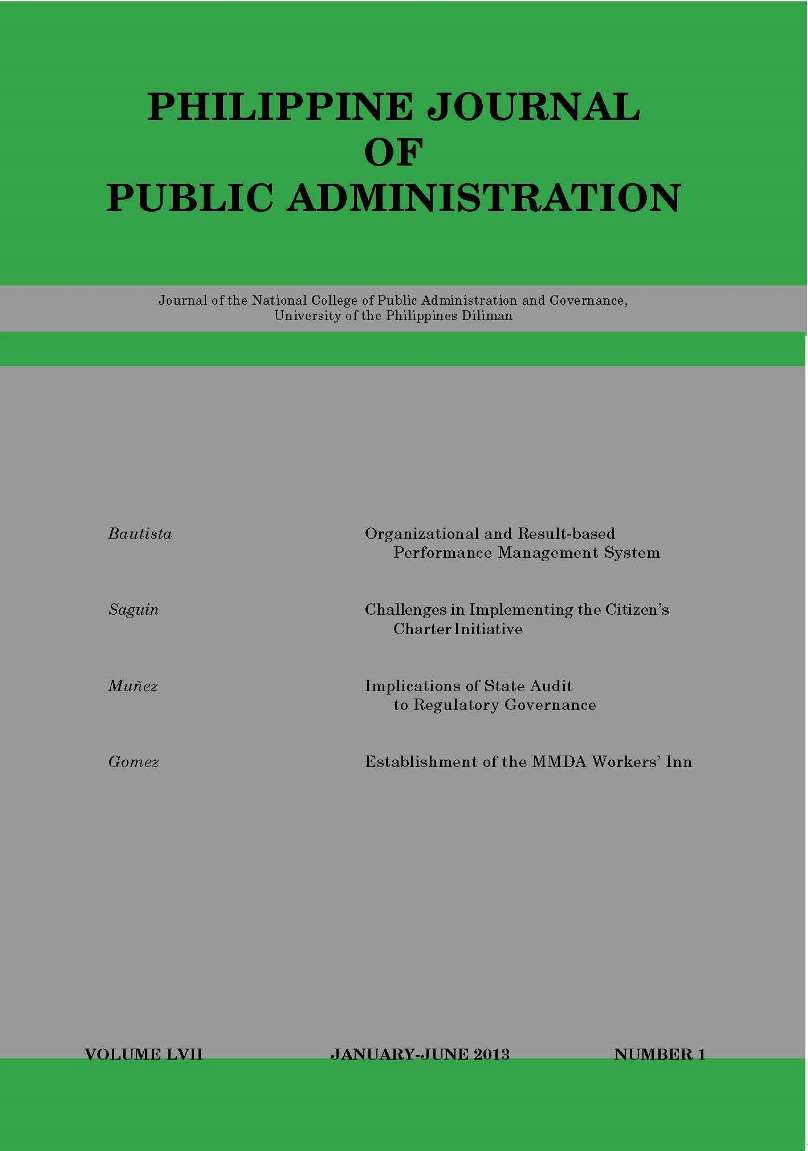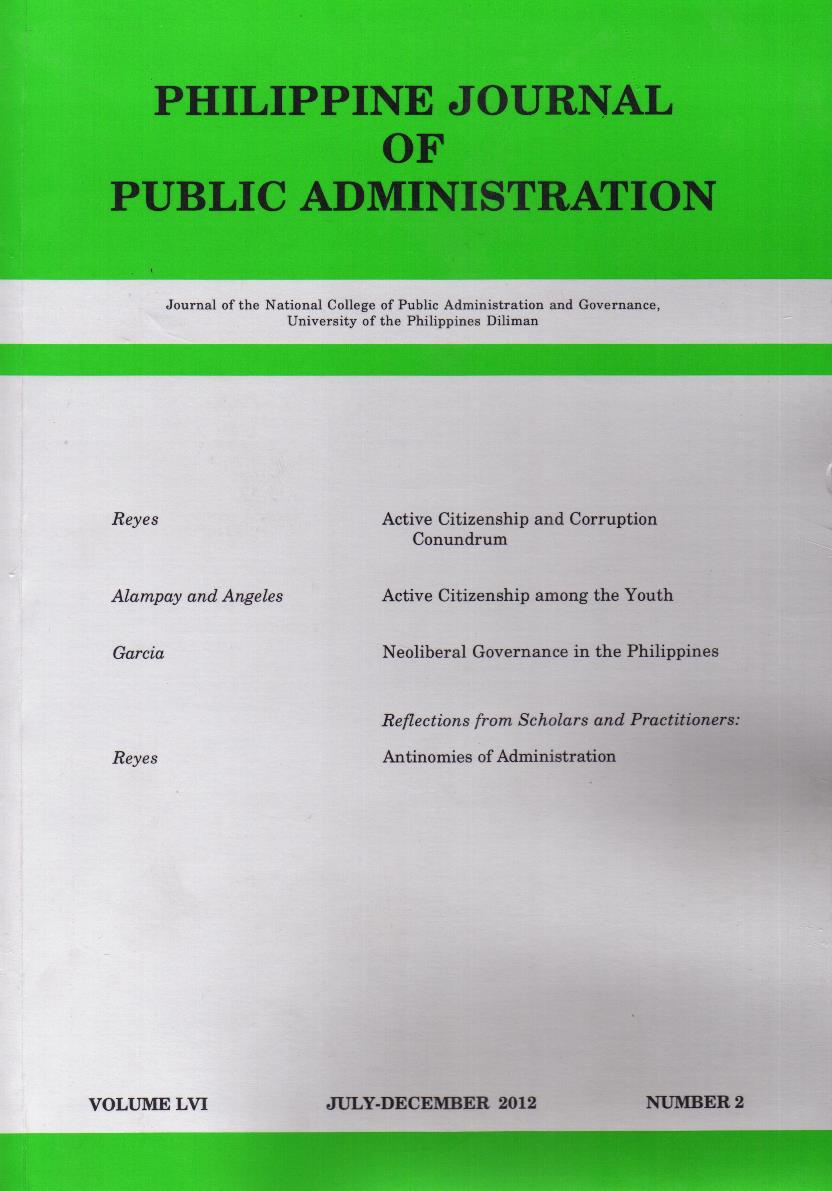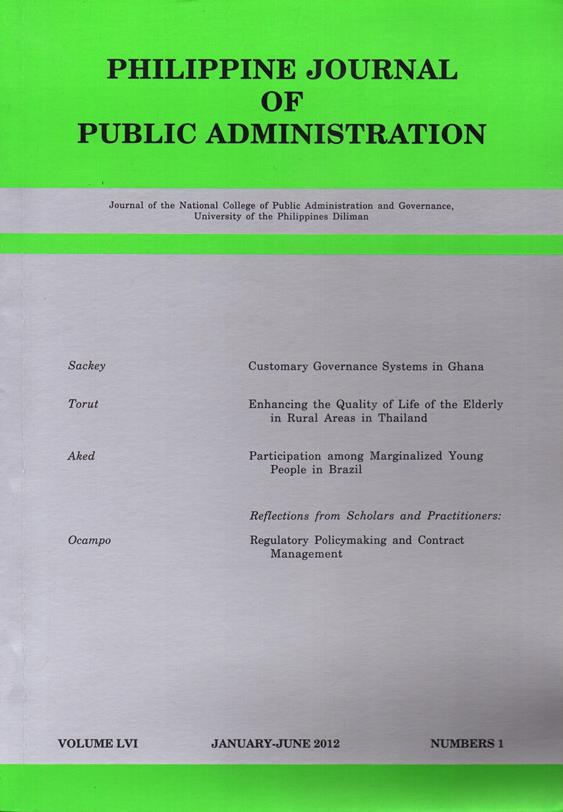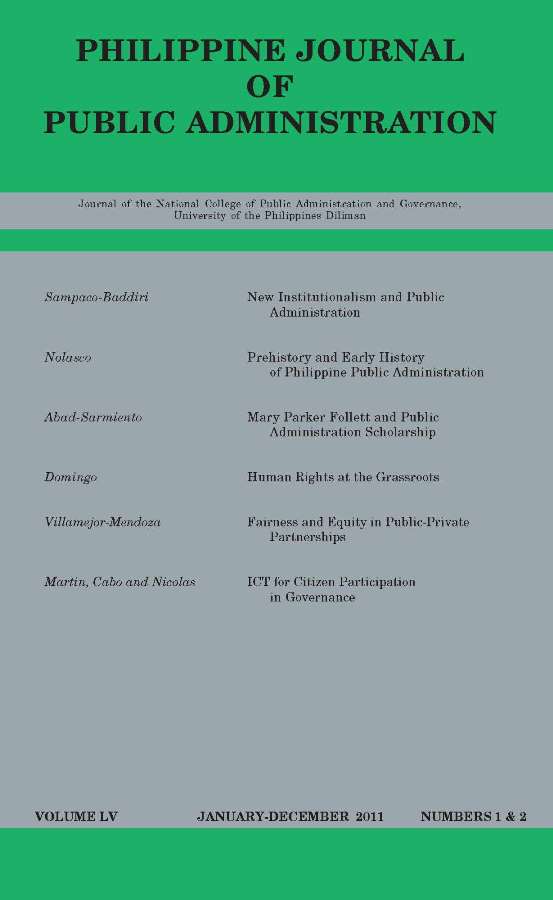ISSN (Online): 3028-1296
ISSN (Print): 0031-7675
Interested to submit to PJPA? The journal uses the ScholarOne Manuscripts as the submission and review platform. Please click here to register and submit your manuscript.
 Vol 57 No 1 (2013)
Vol 57 No 1 (2013)
Accountability and efficiency as mainstay concepts in contempor ary discourses in the field of study of Public Administration are ideas or principles forwarded in the New Public Management paradigm. In this issue of the Philippine Journal of Public Administration, scholars examine these concepts and the various mechanisms employed by state agencies as they per form their functions and find ways to improve public service delivery and optimize the use of resources.
 Vol 56 No 2 (2012)
Vol 56 No 2 (2012)
 Vol 56 No 1 (2012)
Vol 56 No 1 (2012)
 Vol 55 No 1&2 (2011)
Vol 55 No 1&2 (2011)
This issue of the Philippine Journal of Public Administration (PJPA) features reviews of fundamental concepts and models of public administration and studies on innovative practices. At the broader sphere, a paradigmatic analysis in reckoning the history of Philippine Public Administration (PPA), primarily drawing on the bureaucratic model of Max Weber, is put forth challenging a conventional lens in viewing the evolution of the PPA. Likewise, the PJPA issue presents an inevitable review of public administration’s cognate concepts and theories of organization and management, such as institutionalism. Email us at pjpa.editor@gmail.com or call us at +632 926 1443 for more information on how you can access the full articles.
ISSN (Online): 3028-1296
ISSN (Print): 0031-7675
Interested to submit to PJPA? The journal uses the ScholarOne Manuscripts as the submission and review platform. Please click here to register and submit your manuscript.
The Philippine Journal of Public Administration is a peer-reviewed journal that publishes research, reflections, and other scholarly work on public administration and governance within and outside the Philippines.
Original, full-length articles are subject to double-blind peer review, while those in special sections (i.e., essays, research or policy notes, book reviews) are reviewed by the editors.
The PJPA showcases developments, challenges and ways forward in the fields of policy and program administration, fiscal administration, voluntary sector management, leadership, ethics and accountability in public service, local governance, spatial administration, citizenship, democracy, organization and management, e-governance and networked governance, among others.
The journal is published once a year, i.e., annually. The journal accepts submissions all year round. Interested contributors should adhere to the Journal Policies and Author Guidelines. For more information, please refer to the "About" page.
The PJPA is a diamond open-access journal. It publishes high-quality open access content online free of charge to the readers. Likewise, the PJPA does not charge authors submission fees, processing fees, publication fees, or page charges.
The journal complies with the publication ethics and malpractice principles and guidelines set by the Committee on Publication Ethics (COPE). Read PJPA's ethics and malpractice statement here.